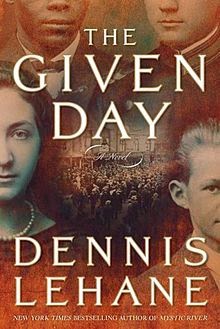Non-Fiction Review: Dark Tide: The Great Molasses Flood of 1919

Stephen Puleo's book Dark Tide covers a remarkably forgotten tragedy. On January 15, 1919, a 2.3 million gallon tank of molasses collapsed, spilling its contents in Boston's North End in a wave traveling some 35 miles per hour. Twenty-one people lost their lives and some 150 were injured. It almost sounds comical until you consider the horror such an event would no doubt present. Consider how horrible it would be to literally drown in molasses. Yes this is an event that is not in the popular history of the nation or even Boston. Dark Tide is divided into three sections. The first, "A Monster in Our Midst" deals with the construction of the tank. Rather than being an exercise in engineering discussion it instead explains why it was built and what the nation and city were like at the time. Puleo explains how the United States Industrial Alcohol Corporation (USIA) distilled molasses in various plants, with one such plant being in Cambridge. A portion of the mola


